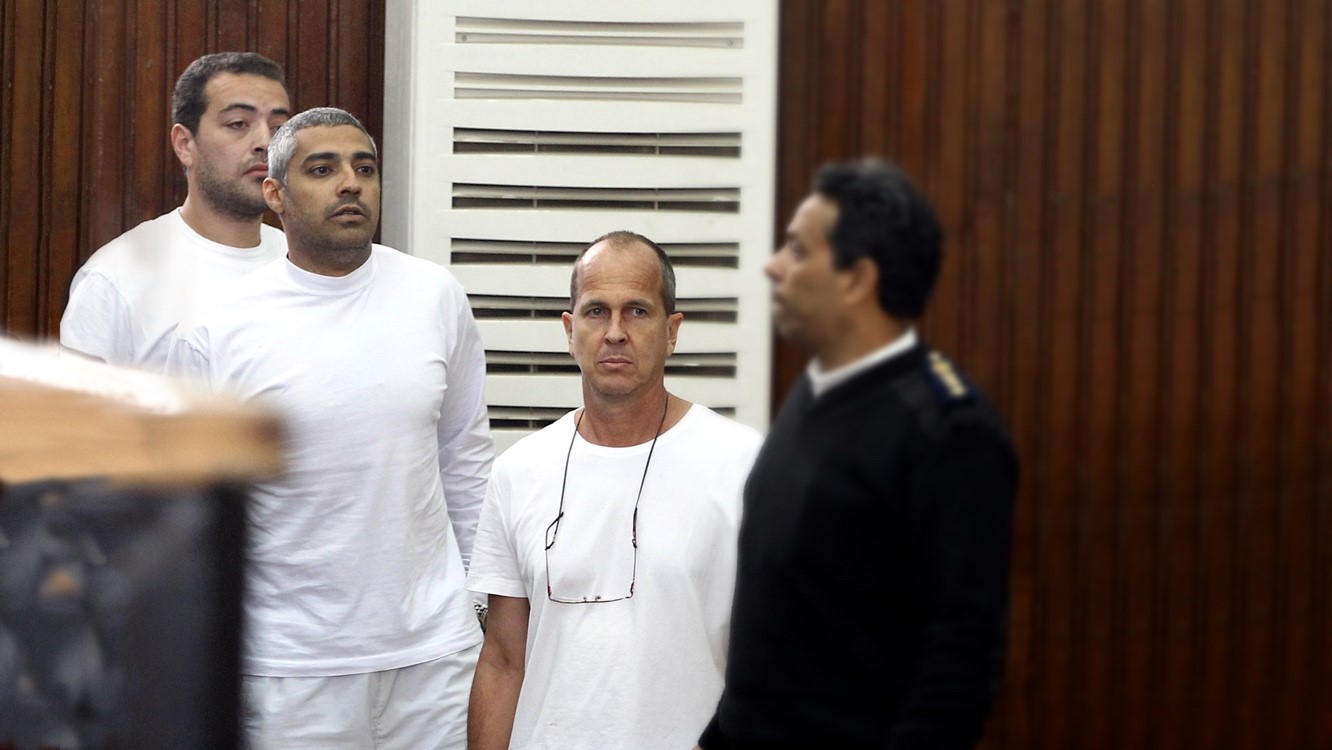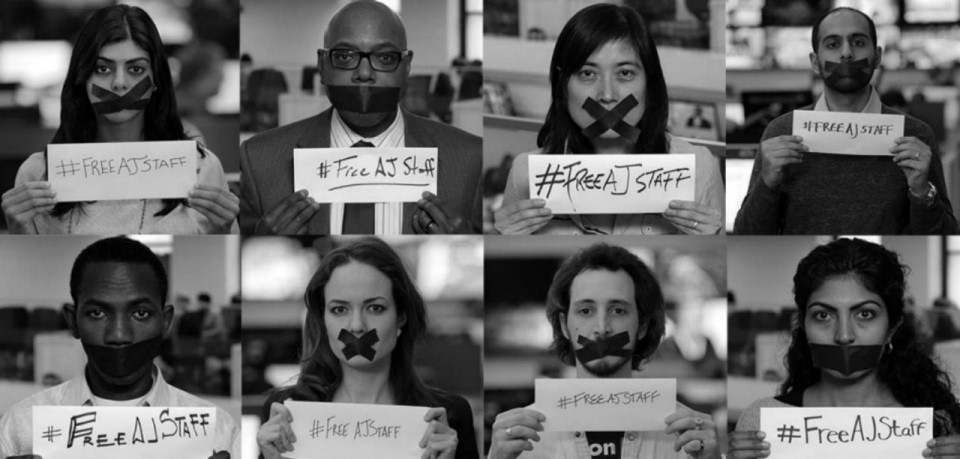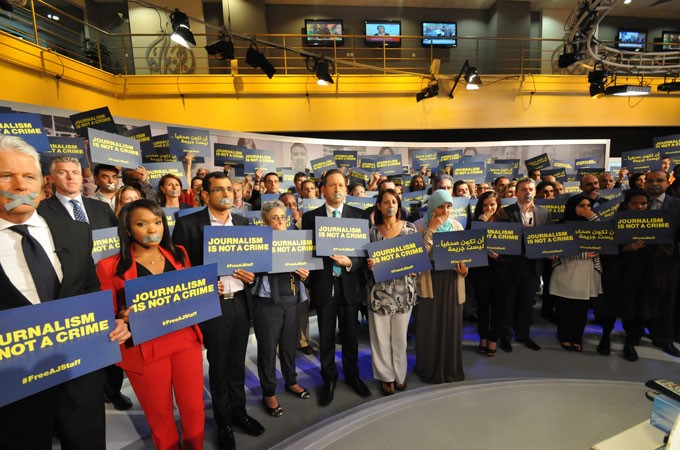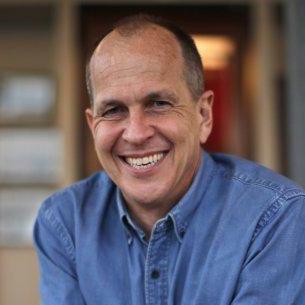البروباغندا والرقابة مفهومان قديمان بقدم الحرب نفسها ولكن التحكّم بالقصة الصحافية بشكل عام يعد أصعب من استهداف الشخص الذي يرويها. في عالم مثالي، لا يفترض أن تكون الصحافة مهنة خطيرة. صحيح أنها دائماً تنطوي على مخاطر ولكننا كرواة للقصص الصحافية لا يفترض بنا أن نكون ناشطين بل وسطاء، ولا يفترض أن نكون مشاركين بل مراقبين.
غير أن نظرة على الإحصاءات تظهر بعض الأرقام المقلقة. فقد كانت لجنة حماية الصحافيين ومقرها نيويورك ترصد عدد الصحافيين والعاملين في قطاع الإعلام الذين قتلوا منذ العام 1991. وتظهر رسومها البيانية بعض السنوات السيئة في مطلع تسعينيات القرن الماضي حين قتل العديد من المراسلين في نزاعين بارزين هما رواندا ويوغوسلافيا السابقة. وهناك كان معظم الضحايا صحافيون محليون قتلوا بسبب عرقهم أكثر منه بسبب عملهم. ولاحقاً، بدأ العدد يتضاءل تدريجياً حيث قتل 30 و40 صحافياً سنوياً حتى العام 2004 قبل أن ترتفع الأرقام مجدداً لتبلغ ما بين 70 و110 سنوياً. ويمكن إرجاع التصاعد في العنف ضد الصحافيين منذ منتصف العقد الأول من القرن الجاري، إلى أسباب مختلفة من بينها الحرب طبعاً. فالأرقام تظهر أنّ عدداً أكبر من الصحافيين يقتلون في النزاعات المفتوحة.
أما في العالم العربي فشهد العنف ضد الصحافيين ارتفاعاً كبيراً بعد هجمات 11 سبتمبر. فالصحافيون الذين قتلوا في العراق وسوريا يمثلون 20% من مجموع القتلى في صفوف هذه الفئة الذين وثّقتهم لجنة حماية الصحافيين منذ العام 1992. وهما البلدان الأكثر دموية في العالم للصحافيين. ولكن هجمات 11 سبتمبر و"الحرب على الإرهاب" التي تلتها، أثرت على سلامة الصحافيين في مناطق معينة من العالم. ولطالما فكرت بهما على أنهما نقطتا تحوّل للصحافة لا سيما لحظة قال الرئيس جورج دبليو بوش "إمّا أن تكونوا معنا أو أنتم مع الإرهابيين". وهذا التصريح لوحده جعل النزاع خياراً من اثنين. فأنت إما مع أحد الجانبين في المعركة أو مع الآخر ولا يمكنك أن تلتزم الحياد. وترتّب على ذلك تداعيات عميقة على الصحافيين، فمساحة الحياد والاستقلالية التي تتطلّبها معاييرنا المهنية تبخّرت فجأة بين ليلة وضحاها.
"الحرب على الإرهاب"
وصف أحد أصدقائي المقربين بسخرية "الحرب على الإرهاب" بأنها حرب على اسم مجرّد يعني ما يريده أي شخص. وهي حرب ذات نهاية مفتوحة حيث من المستحيل تعريف "النصر" فيها ولا وصفه. وعلى مر التاريخ، تمّ تأطير أكثر من حرب أو نزاع بروايات تسهّل انتهاك حقوق الإنسان بشكل ممنهج لا سيما لأن الخط الذي يفصل بين المواطن أو المدني والعدوّ يصبح غير واضح نهائياً.
ومن الأمثلة على ذلك الديكتاتوريات العسكرية في الأرجنتين وتشيلي حيث الادعاء أن تعريف من هو "العدو" كان صعباً. الفرق بين هذه الأنواع من النزاعات و"الحرب على الإرهاب" هو أن الأخيرة لديها بعدٌ دولي ونطاق وتأثير عالميين. ونحن في الغرب نميل إلى التفكير بشكل واضح بما يعنيه خوض حرب ضد الإرهاب. فهو يعني وقف القتل في أماكن مثل باريس والتفجيرات العشوائية في كابول وبغداد أو الحوادث التي تم التخطيط لها وتنفيذها داخلياً مثل الهجوم على "ليندت كافيه" في أستراليا، أو إطلاق النار في ملهى ليلي في أورلاندو في الولايات المتحدة. ولكن لا بد أن أفكّر في ما قاله لي بعض الإسلاميين الذين التقيتهم في السجن. فـ "الحرب على الإرهاب" بالنسبة إليهم تعني وقف غارات طائرات الاستطلاع على مستشفى في أفغانستان أو حفلات زفاف في وزيرستان أو البراميل المتفجرة في حلب وطبعاً الاعتقالات العشوائية والضرب والتعذيب في سجون القاهرة.
في الحرب، تمتد ساحة المعركة إلى حيث الأفكار حتى تتعرّض للاضطهاد وهذا يشمل الإعلام. فمختلف الأطراف أو الفصائل تتصارع للفوز بتأييد الجمهور. غير أنه في النزاعات الأخيرة، نرى بشكل متزايد أن الصحافيين لا يكتفون بأن يكونوا شهوداً أو مراسلين في هذه الصراعات بل أصبحنا، من حيث التعريف، أدوات تستخدم لخوض الحرب نفسها.
وهذا ليس مفهوماً مجرداً. فإحدى الطلقات الأولى في هذه الحرب على الأفكار، جاءت من سلاح الجو الأميركي الذي قصف مكتب الجزيرة في كابول في تشرين الثاني/نوفمبر 2011. يومها، أعلنت الولايات المتحدة رسمياً أن ما حصل كان خطأ ولكن من الصعب الهروب من الخلاصة بأنّها هاجمت المكتب لأنها أرادت منع وصول الصحافيين في الخدمة العربية إلى مصادر في طالبان والقاعدة. وبغض النظر عمّا كنت تفكّر في الصواب أو الخطأ الذي قد تقوم به هذه المجموعات، تبقى الحقيقة هي أن الولايات المتحدة استهدفت مؤسسة إعلامية لأنها لم توافق على الأفكار التي تطرحها. هذا أحد الأمثلة على كيف يكون تطبيق التقسيم الزائف "إمّا أن تكونوا معنا أو أنتم مع الإرهابيين".
على الجانب الثاني يمكن رؤية الديناميكية ذاتها. فبعد أسابيع قليلة، أوقفت طالبان مجموعة من أربعة صحافيين على الطريق من باكستان إلى كابول وقتلتهم ببساطة بسبب ما هم عليه وليس بسبب شيء فعلوه.
وبعدها أعدم دانيل بيرل مراسل "وول ستريت جورنال" الذي تعرّض لحادثة الخطف الشهيرة في باكستان وقطع رأسه بعد أشهر قليلة. وجاء نشر عملية الإعدام على الإنترنت، بمثابة أسلوب إعلامي جديد استخدمته القاعدة لنشر رسالتها الخاصة وهي أن الذين يتحدون وجهة نظرها حول الطريقة التي يجب أن يعمل بها المجتمع سيتعرّضون للإعدام. وما بدأته القاعدة احترفه "تنظيم الدولة في العراق والشام" مع مقاطع فيديو الإعدام المثيرة للغثيان، واستعماله الإعلام الاجتماعي للتعبئة والترهيب. في هذه الحرب، أصبح الإعلام الاجتماعي سلاحاً إرهابياً مثله مثل أي قنبلة.
وبالطبع فإن ردة الفعل البديهية الأولى لأي حكومة وبالتالي أي مجتمع ـ يجد نفسه معرّضاً للهجوم - هو إغلاق الصفوف وتقديم الأمن على كل شيء آخر، وإسكات المنشقّين والتحكّم بالرأي العام. ولكن اليوم مع تذرّع الحكومات حول العالم بـ "الحرب على الإرهاب" و"الأمن القومي"، نجدها تحدّ من حرية التعبير وتفرض رقابة على الصحافة.
وفيما يلي بعض الأمثلة التي قدّمتها لجنة حماية الصحافيين إلى لجنة في الكونغرس الأميركي:
ـ في تونس، اقترحت الحكومة مشروع قانون في العام 2015 يجرّم تشويه سمعة الشرطة أو قوات الأمن. ويسمح قانون مكافحة الإرهاب بإنزال عقوبات بالسجن حتى خمس سنوات لأي شخص أشاد بعمل إرهابي أو أي شخص ارتبط به. فهذه الأحكام واسعة النطاق والتي تحاكي قوانين في دول أخرى بالمنطقة تنتهك حق الحصول على المعلومات ونقلها بحرية وحق حرية التعبير.
ـ في الكاميرون، كان الصحافي المستقل سيمون أتيبا يعدّ تقارير عن حال النيجيريين في مخيمات اللجوء في الكاميرون وتشاد حيث أجرى مقابلات مع أشخاص فروا من قبضة "بوكو حرام". وقد اعتقل أتيبا واتّهم بالتجسس لصالح "بوكو حرام".
ـ تمنح استراتيجيات الحكومة لمكافحة التشدد هيئة تنظيم البث في المملكة المتحدة "أوفكوم" Ofcom سلطة متزايدة لاتخاذ إجراء ضد قنوات الإذاعة التلفزيون التي تبث محتوى "متشدداً". كما أنها تطلب من مقدّمي خدمات الإنترنت القيام بالمزيد من الجهد لإزالة أي محتوى متشدد وملاحقة من ينشره. وشهدنا أيضاً حالات انتهاك لحرية الصحافة بموجب تشريع بريطاني لمكافحة الإرهاب. ففي آب/أغسطس 2015، استخدمت الشرطة البريطانية صلاحيات خاصة بموجب "قانون الإرهاب" لعام 2000 لمصادرة الحاسوب المحمول لسيكوندر كرماني مراسل برنامج "نيوز نايت" Newsnight الإخباري الذي تعرضه "بي بي سي 2". كما اعترض "مقر الاتصالات الحكومية البريطانية" British Government Communications Headquarters رسائل إلكترونية تبادلها صحافيون يعملون لدى بعض من كبريات وسائل الإعلام في الولايات المتحدة والمملكة المتحدة.
ـ في روسيا خضعت "دوشد" Dozhd TV القناة المستقلة الوحيدة المتبقّية في البلاد لمراجعة حسابات للتحقق من وجود أي انتهاكات لقانون مكافحة الإرهاب من ضمن انتهاكات قانونية مزعومة أخرى، وهو ما اعتبرته لجنة حماية الصحافيين وجهات أخرى هجوماً مسيّساً. ولكن محاولات استخدام قوانين مكافحة التطرف لتقييد الأخبار والتغطيات الإخبارية ليس جديداً. ففي العام 2006، وسّع مشروع قانون روسي تعريف التطرف ليضم انتقاد الإعلام للمسؤولين الحكوميين.
تغطية النزاع من مصر: شهادة شخصية
تعود تجربتي الشخصية المباشرة إلى تغطية الأحداث الأخيرة في مصر. ففي سياق الربيع العربي، اعتقلنا أنا وزميلاي المنتجان محمد فهمي وباهر محمد ووجّهت لنا تهم الانتماء إلى منظمة إرهابية ودعم منظمة إرهابية وتمويل منظمة إرهابية وبث أخبار كاذبة تقوّض الأمن القومي. ولكنّ الواقع أن كل ما كنّا نفعله هو تغطية الصراع السياسي المتكشّف بكل نزاهة مهنيّة بما يشمل نقل ما اعتقدنا أنه دقيق ومتوازن. وفي حالتنا كان النقل المتوازن للأحداث يشمل مقابلة أعضاء في جماعة الإخوان المسلمين الذين لم يمر سوى شهرين على إزاحتهم من السلطة بعد تشكيل أول حكومة منتخبة ديمقراطياً في البلاد. أي بعبارة أخرى كنّا نتحدث إلى المعارضة.
لذلك زعم المحققون المصريون بأننا استغلّينا دورنا كصحافيين كغطاء للعمل كمروّجين لبروباغندا الإخوان المسلمين. ولكنّ هذا التوصيف لا يفاجئ الكثير من الناس لا سيّما أن معظم الناس في مصر يرونه متّسقاً مع الطريقة التي تنظر فيها الحكومة الحالية إلى كيفية عمل معظم الصحافيين.
لو أنّنا فعلاً ارتكبنا بعضاً من تلك التّهم لما كنت اعترضت على الاعتقال. أي لو أننا فعلاً نشرنا أخباراً كاذبة مثلاً أو كنّا فعلاً أعضاء في منظمة إرهابية. ولكن لم يقدّم الادعاء في أي مرحلة من مراحل المحاكمة أيّ شيء لتأكيد التهم. ومجدداً لم يكن كلّ ذلك بسبب شيء فعلناه بل بسبب الأفكار التي كنّا متّهمين بنقلها.

صورة 1: من اليسار إلى اليمين، المنتج باهر محمد والصحفي السابق في الجزيرة محمد فهمي والمراسل بيتر غريستي في المحكمة. الصورة من "الجزيرة".
واستمرّت مصر على هذا المنوال إلى أن صدر تشريع جديد يجرّم نشر أي شيء يتناقض مع الرواية الرسمية لأي حادث إرهابي. فإذا تحققت من الوقائع واكتشفت أن الحكومة تحاول إخفاء بعض الحقائق غير المناسبة ونشرت ما اكتشفته، فقد تغرّم بأكثر من 50 ألف دولار أميركي.
ولكن مع بدء تكشّف الحقائق في قضيتنا، بدأت موجة هائلة من الدعم الاستثنائي لنا على يد زملائنا في المهنة بينهم بعض من أشرس خصومنا. ووقف مئات الأشخاص من منظمات مثل "سي إن إن" و"بي بي سي" بأفواه مغلقة بشريط لاصق حاملين لافتات كتب عليها "الحرية لفريق الجزيرة".

بعدها تحرّك الجمهور لدعمنا، أولاً بالمئات ثم بالآلاف ثم بالملايين وحتى بمئات الملايين. وحصل وسم #FreeAJStaff (الحرية لفريق الجزيرة) على حوالي ثلاثة مليارات مشاركة على تويتر وهو رقم استثنائي بكل المقاييس. وتالياً، جاء دور السياسيين الذين اصطفوا وراءنا بإجماع استثنائي أيضاً وهو أمر نادر هذه الأيام.
النزاهة المهنيّة كدرعك الأقوى
في هذه الأجواء الجديدة، كيف يجب أن يكون ردّنا؟ ما هي الطريقة الأسرع لحماية أنفسنا وأداء عملنا بنزاهة ومهنيّة؟ رد الفعل المغري هو بالطبع الاستسلام للضغط من الجانبين وترك الساحة للمتحاربين والاعتماد على كل ما تطلعنا عليه القنوات الرسمية. فببساطة من السهل الاقتباس من طرف أو آخر من دون محاولة الوصول إلى الحقيقة. ويمكننا أن نمنح الهواء للسياسيين من دون أن نجادلهم بحجة أننا "نقوم بعملنا" عبر نقل ما يقولونه.
هكذا نصبح حرفياً "الوسيط" أي الوسيلة التي ينقل بها الآخرون رسالتهم ولكن ذلك لا يجعلنا أفضل من الإعلام الاجتماعي حيث نلعب دور مكبّر صوت للتصريحات الكاذبة والمحرَّفة للآخرين. وهذا يعطي شعوراً بالأمان لأنه لا يغضب أحدٌ منّا ولكن هذه ليست صحافة جيّدة. وتجربتنا في مصر تؤكد أن هذا الأسلوب ليس آمناً كما يبدو. ففي النهاية، درعنا الأكبر كمراسلين ـ وهو في الواقع الوحيد ـ هو نزاهتنا المهنية.
في الخلاصة، إن الدعم الواسع الذي حصلنا عليه أُثناء المحاكمة جاء نتيجة إدراك الجميع أننا كنّا دائماً أوفياء لأعلى المعايير الأخلاقية ليس في تغطيتنا لمصر فحسب بل أيضاً طيلة مسيرتنا. فلو أنّ أياً منّا ارتكب أيّ سقطة في الماضي، ولو أننا استسلمنا بطريقة ما ونشرنا تقارير منحازة أو غير دقيقة، لكان منتقدونا في مصر استخدموها ضدّنا ولما كان أحد، سواء زملاؤنا أو الجمهور أو السياسيون، لديه ثقة بنزاهتنا المهنية، ولكانوا بدأوا يتساءلون عمّا إذا كانت الادعاءات صحيحة. ولكان الدعم الذي حظينا به تلاشى ولكنّا ما زلنا في السجن.
ورغم المواقف السلبية من الصحافة والإعلام بشكل عام، ما زال ثمة فهم بين الجمهور بأن ما نفعله في الواقع أساسي جداً لكيفية عمل مجتمعاتنا. فهم يعلمون وأنتم تعلمون أنه رغم كل الانتقاد الذي يطال الإعلام، فإن الديمقراطية لن تأخذ مجراها إلاّ إذا حصل تبادل حر للأفكار والمعلومات وبوجود رقيب يتتبّع الذين يتخذون القرارات باسمنا. دعمنا الناس جزئياً لأنهم غضبوا مما نمرّ به على المستوى الشخصي ولكنّهم رفعوا الصوت لأنهم اعترفوا وآمنوا بأهمية القيم التي نمثّلها أي حرية التعبير وحرية الصحافة وحكم القانون في مجتمع يعمل بشكل سليم.


















![Palestinian journalists attempt to connect to the internet using their phones in Rafah on the southern Gaza Strip. [Said Khatib/AFP]](/sites/default/files/ajr/2025/34962UB-highres-1705225575%20Large.jpeg)





















